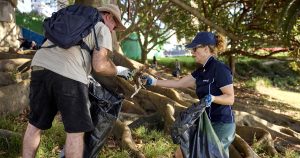Loneliness is a distressing feeling we experience when we don’t have the social relationships or interaction that we would like. Prior to the COVID-19 pandemic, we know that one in four Australians were lonely. It is expected that this number is probably higher now. People who are lonely have significantly worse physical and mental health than those who have good relationships.
Included below are some tips to help if you are feeling lonely or isolated during the pandemic.
1. Get in touch with someone you haven’t spoken to for some time. Most people enjoy contact from long lost friends or relatives – it makes them feel special that others are thinking of them. Organise to have a coffee over a video chat if you can’t see them face to face
2. Enhance the quality of your existing social interactions, by putting away your phone and turning off the television so that you can give others your full attention
3. Get outside to exercise – go for a walk everyday if you can
4. Say hello to people you see while out exercising or at the supermarket
5. Support others in your community, workplace, family or church who might be feeling lonely or isolated. Drop a letter or child’s drawing in someone’s letterbox. Offer to go to the shops for someone who can’t get out. Put a teddy bear or drawing in your window. Helping others helps us to feel more connected.
6. Limit exposure to media or social media to once or twice a day, as this can just make us feel worse or more anxious at present.
7. Look for online groups related to a hobby you might have enjoyed in the past. While some feelings of loneliness and anxiety are normal, if these continue for more than about two weeks talk to your GP. For more information on loneliness and social isolation during the pandemic see this handout from the Australian Psychological Society. https://www.psychology.org.au/getmedia/2612f989-0299-4b54-9ebeb38977b87e7f/ 20APS-ISCOVID-19-Loneliness-P1.pdf






